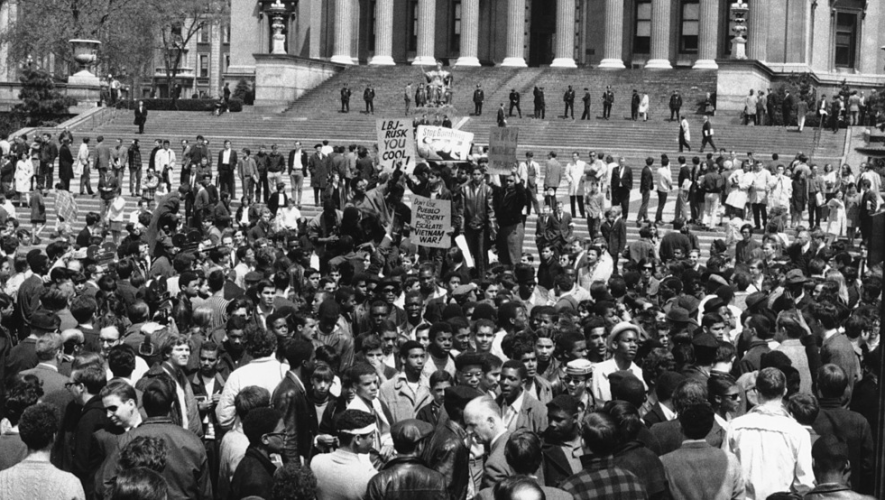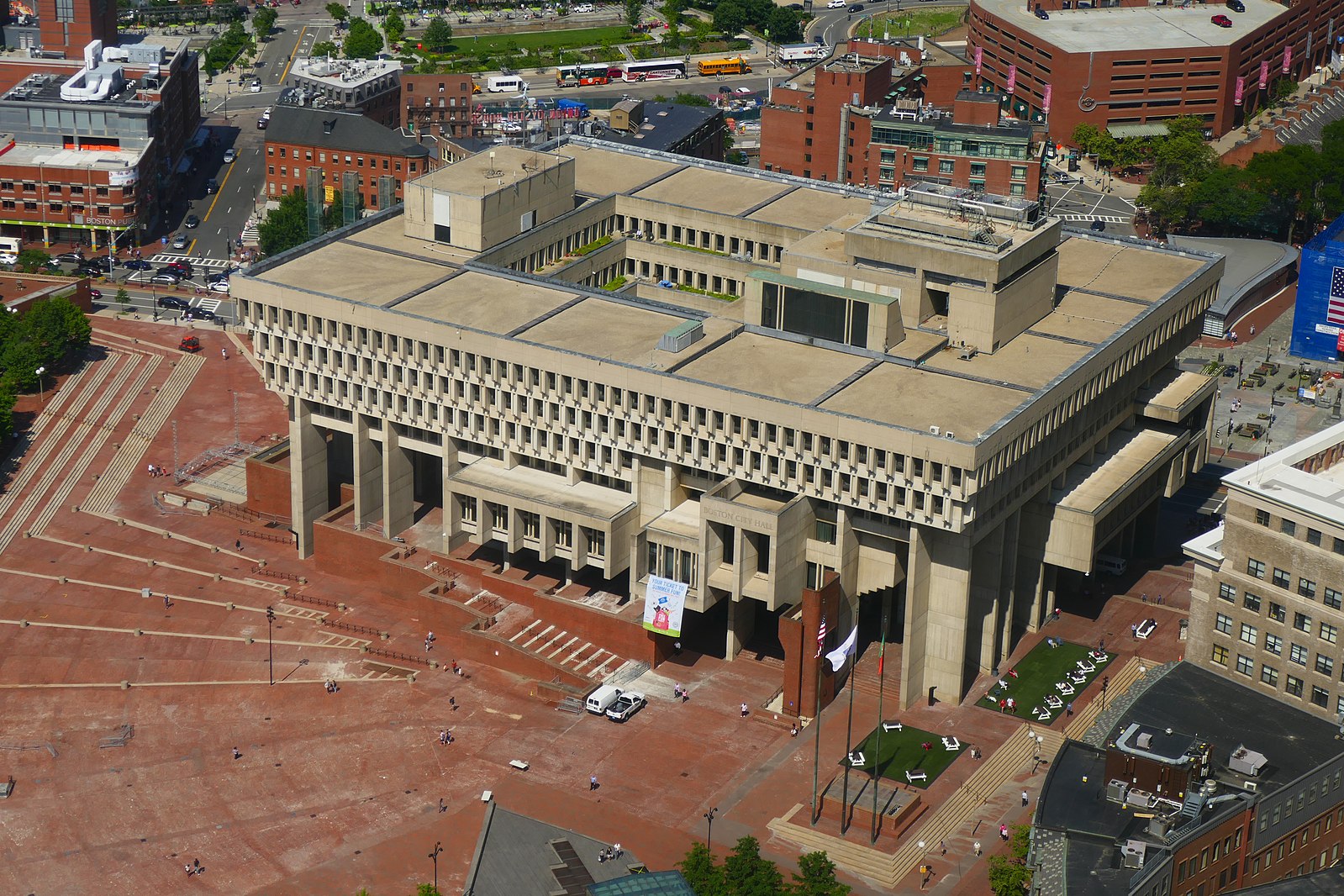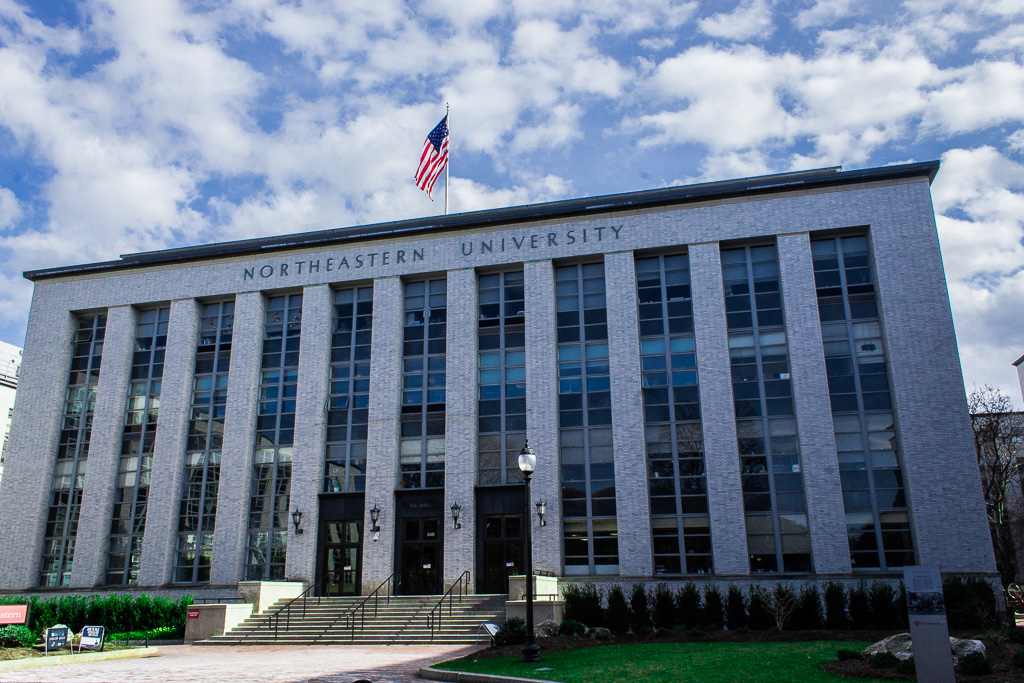Private universities, not being bound by the First Amendment like public schools, can choose to regulate speech as they see fit on their campuses. Some campuses adopt free speech protections similar to those of public universities and choose to function as public forums. Others choose to limit the range of discourse on campus and function as walled cities.
The first pillar of Northeastern’s strategic plan, Experience Unleashed, is “Build on the power of diversity.” Northeastern claims that, to benefit from diversity, there must be “constant interaction among people who bring their own diverse contexts and experiences to the conversation.” Additionally, Northeastern’s student handbook claims that “students enjoy the same basic privileges . . . as all citizens.” These basic privileges surely include the rights to expression and assembly protected by the First Amendment.
Northeastern’s demonstration policy, however, contradicts these statements. The policy prohibits university community members from holding peaceful demonstrations on campus without the Center for Student Involvement’s permission. To receive permission, CSI requires student organizations to submit a demonstration permit application form “at least 7 days before [the] organization intends to demonstrate on campus property.” In 2013, Northeastern used this policy to indefinitely suspend Students for Justice in Palestine following a peaceful demonstration.
This might seem like a minor inconsistency, but it reveals a deeper contradiction in Northeastern’s self-conception. Northeastern is torn between two models of the private university: the public forum and the walled city. Northeastern’s failure to adhere to either model impedes speech and inquiry on campus without furthering other well-defined purposes, such as student safety or diversity. This contributes to self-censorship on campus. To effectively pursue its goals, Northeastern should adopt either model of the university—the public forum or the walled city—and act accordingly.
The Public Forum Model
The public forum model envisions the university as a free space for constructive conversation and criticism. This model can help create functioning marketplaces of ideas that aid in the pursuit of truth by promoting open discussion.
In his essay On Liberty, John Stuart Mill argues in support of free speech and expression. He writes that silencing someone from speaking an opinion is “robbing the human race” of benefit. If the opinion is right, then others are “deprived of the opportunity of exchanging error for truth.” If the opinion is wrong, then others lose the chance to grow their “impression of truth” by rebutting errors.
Mill’s arguments are frequently used to defend academic freedom. Effective learning requires understanding both sides of an argument. In On Liberty, Mill writes that “he who knows only his own side of the case, knows little of that.” If a student is unable to refute an opponent’s argument, then he “has no ground for preferring either opinion.” Argumentation theorist Chaïm Perelman supports this view, saying that beliefs that at first seem objective and impartial end up appearing “one sided” in the face of counterarguments.
All public universities are bound by the Constitution to the public forum model. In Widmar v. Vincent (1981), the Supreme Court overturned a University of Missouri at Kansas City (UKMC) policy prohibiting religious groups from using campus buildings. In their ruling, the Supreme Court recognized that “the campus of a public university, at least for its students, possesses many of the characteristics of a public forum.” This means that to justify any content-based exclusion, public universities must show the restriction serves a “compelling state interest” and is “narrowly drawn to achieve that end.”
This model is also adopted by private universities that aren’t legally obligated to do so. The University of Chicago (UChicago) has famously adopted the public forum model. In 1967, UChicago released the Kalven report, stating that “the university is the home and sponsor of critics.” According to the report, universities “must sustain an extraordinary environment of freedom of inquiry” to effectively promote “the discovery, improvement, and dissemination of knowledge.” In 2014, UChicago released another statement reaffirming “the University’s commitment to a completely free and open discussion of ideas.”
Over eighty institutions have since adopted or endorsed the 2014 UChicago statement, including Boston University, Brandeis University, and the Massachusetts Institute of Technology. If Northeastern wants to align itself with public universities and many other elite academic institutions, they should adopt the public forum model and adjust their policies accordingly.
The Walled City Model
The walled city model of the university envisions the university as a group of students and scholars working together on some common pursuit. In this model, universities adopt boundaries designed to help them attain their goals.
Notre Dame political science professor Patrick Deneen believes that Catholic universities should restrict campus discourse and adopt the walled city model. In his essay “Against Academic Freedom,” Deneen writes that Mill’s conception of liberty is fundamentally opposed to Christian institutions. Because Mill’s liberty was designed to overturn traditional forms of culture and belief, Deenen thinks that it has no home in Catholic universities.
Deenen goes on to say that because universities hire teachers and select students, they can never be truly neutral. Instead, universities that defend academic freedom inevitably orient themselves “toward progress and transformation of society.” To many, this would seem acceptable and even desirable. To those with a specific belief set like socially conservative Catholics, free-market business students, or social justice advocates, however, restrictions on free speech could improve a university’s value proposition. By establishing community boundaries, discussions within walled city–type universities can take place within a shared worldview. For example, a ban on speech motivated by prejudice could help Northeastern “build on the power of diversity” in line with their strategic plan.
Private universities with worldview-specific goals—whether environmental, political, religious, or other—should be allowed to choose the walled city model. But even if a university’s community boundaries are minimal, they should be clearly articulated and publicized so that students can make an informed decision about where to enroll.
Resolving Northeastern’s Inconsistency
In its high-level statements, Northeastern seems to align itself with the public forum model of the university. Northeastern’s strategic plan targets creating a responsive infrastructure to “achieve fluidity of ideas and discoveries.” If Northeastern’s purpose is solely to foster social change and academic inquiry, it should adopt the public forum model. Northeastern can promote discussion, conversation, and innovation by adopting robust free speech protections. The development of knowledge requires critics.
If, instead, Northeastern wants to prioritize safety and other concerns over discourse, Northeastern should adopt the walled city model of the university and restrict speech accordingly. Northeastern’s demonstration policy claims to restrict demonstrations to “[protect] those . . . who are demonstrating, as well as the rights of others to study and work without unreasonable disruption.”
However, the policy is not narrowly written to serve its stated purpose. As written, the policy prevents Northeastern students from planning demonstrations with less than seven days notice and without a sponsoring student organization. Neither of these restrictions seem necessary to prevent “unreasonable disruption.” The policy also fails to guarantee quick turnarounds on permit applications and requires demonstrations to “comply with the reasonable instructions of University personnel,” further discouraging students from demonstrating.
Zachar Hankewycz, the president of Northeastern’s Ukrainian Cultural Club, said that Northeastern’s “unrealistic and counterproductive” protest policy makes members of the Ukrainian Cultural Club feel excluded from the Northeastern community and like “a nuisance to be shunted aside.” This is because “it’s simply not feasible to respond to real-time, real-world events on such a delayed timescale.” To express themselves, many students “must turn to other groups in the area, like the Ukrainian Cultural Center of New England.” Students are organizing a petition encouraging Northeastern to change its demonstration policy.
Northeastern should determine its institutional goals and write policies narrowly tailored to meet those goals. Excessively broad policies like Northeastern’s demonstration policy dissuade and prevent students from engaging in constructive conversation on campus.



